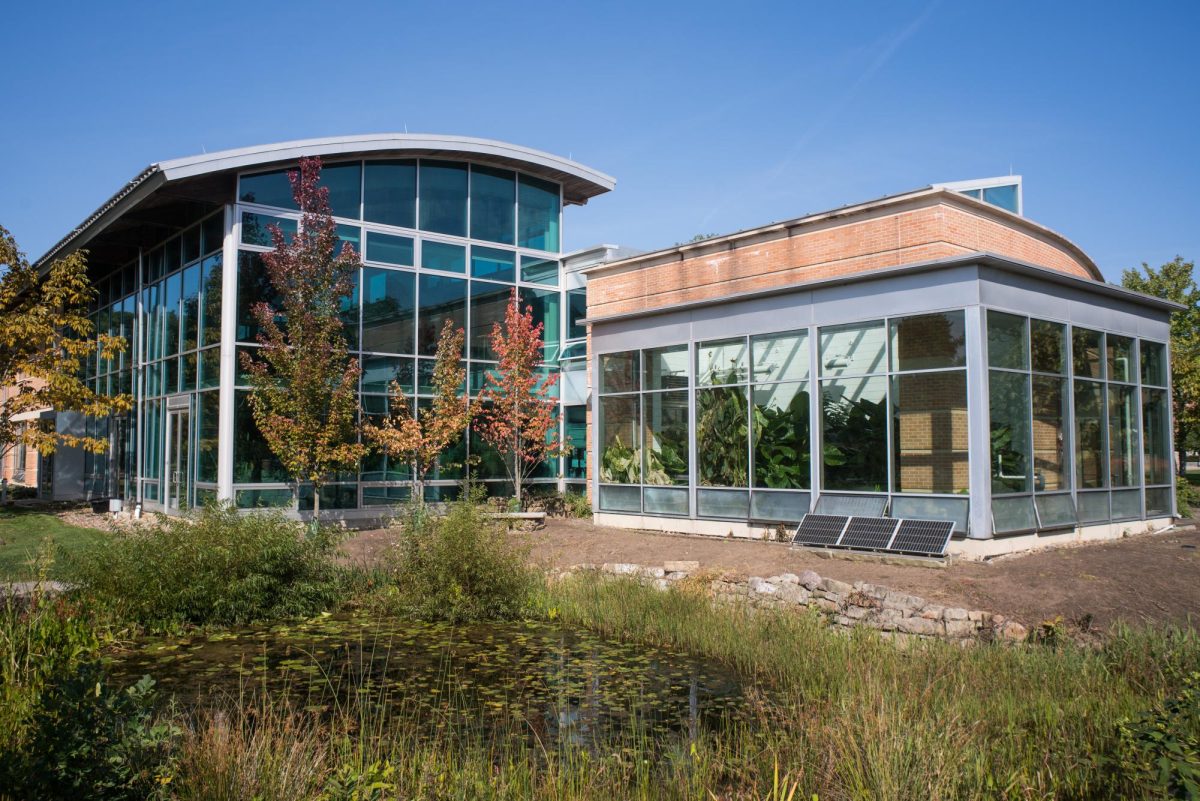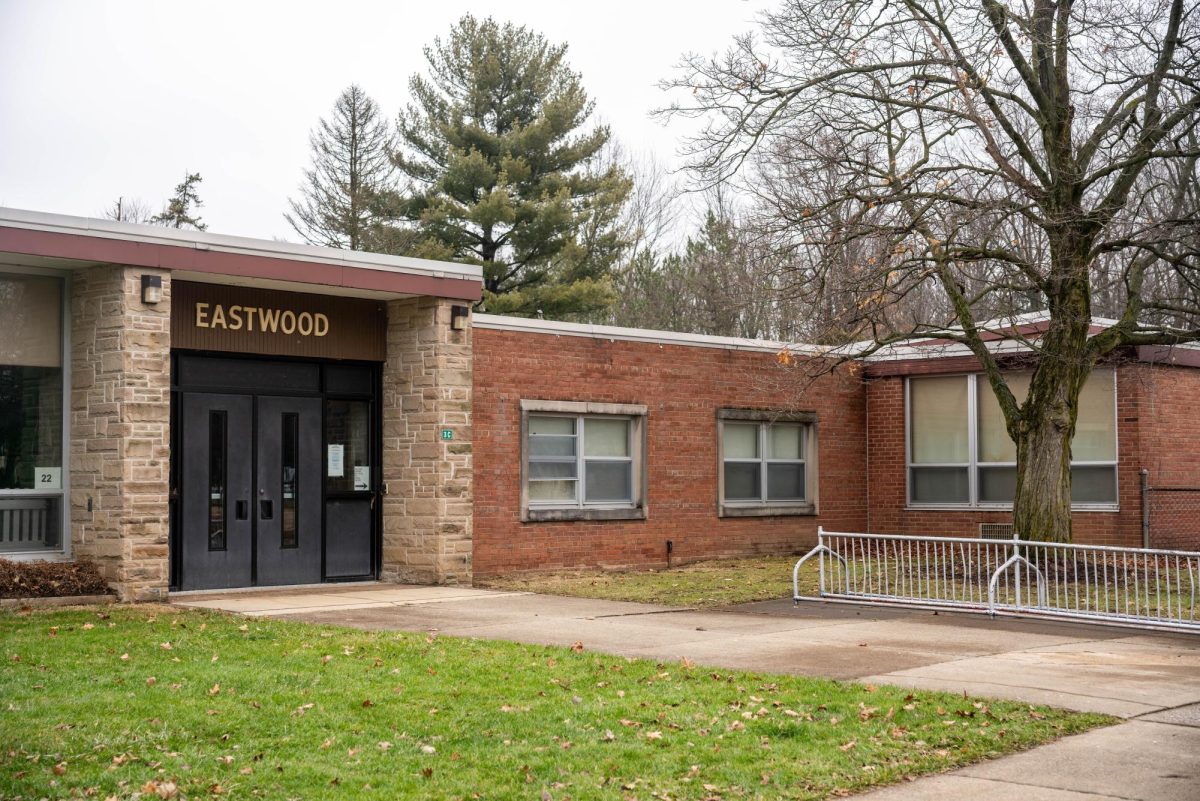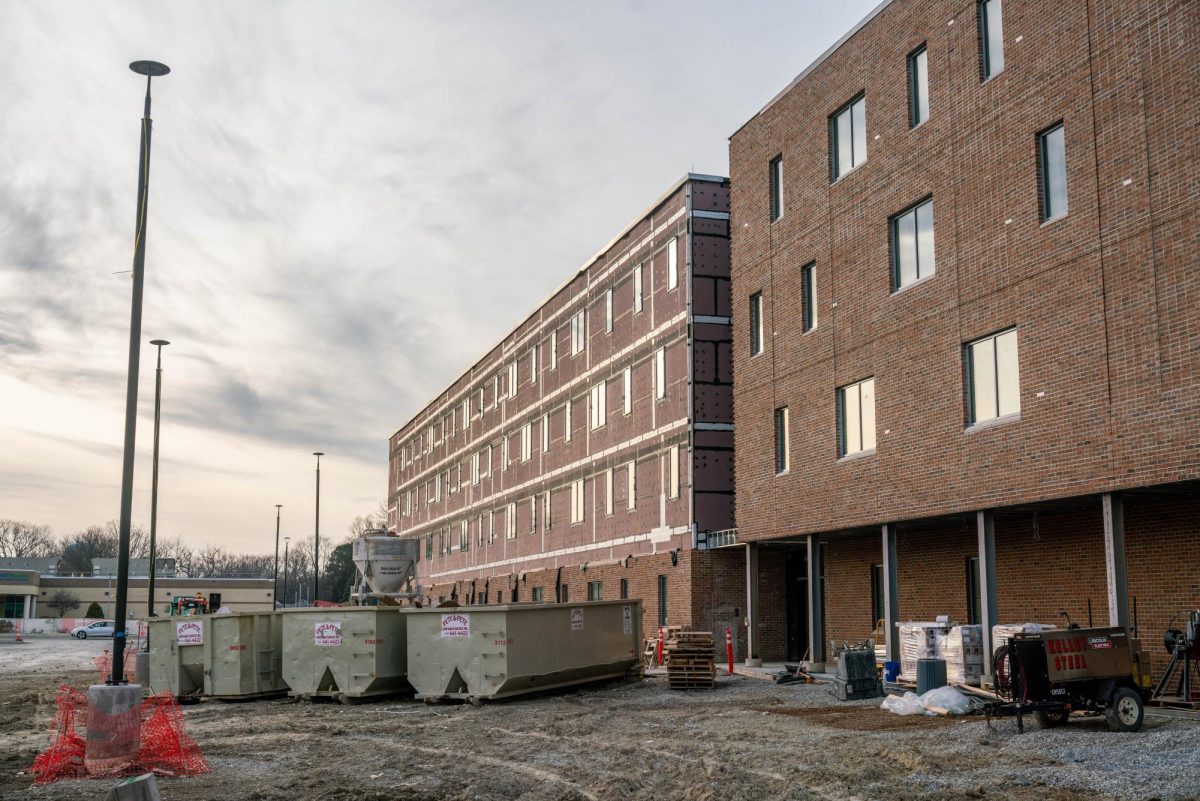The Northeast Ohio Areawide Coordinating Agency held two meetings in Oberlin to gather input on a Climate Action Plan. The first was held Aug. 30 in the Oberlin Public Library and was open to everyone. A second, geared toward high school and college students eligible to vote in Ohio, was held Sept. 12 in the Adam Joseph Lewis Center for Environmental Studies.
NOACA is a transportation and environmental planning agency funded by federal dollars. It is currently leading a series of “engagement meetings,” facilitated by NOACA staff and the Joel Ratner Community Partnership, to gather feedback across Northeast Ohio’s five counties — Cuyahoga, Lake, Geauga, Medina, and Lorain — on NOACA’s Climate Action Plan.
The Climate Action Plan aims to align with national and global efforts to limit global temperature increase to 1.5 degrees Celsius, as set out by the Paris Agreement in 2015, in order to reduce some of the more severe effects of climate change.
“A primary objective of a regional framework and plan for climate action (climate pollution reduction) is to create a foundation for transformative solutions that will enhance equity across the region,” NOACA’s website reads in their description of the plan.
This works in tandem with the City of Oberlin’s current five-year Climate Action Plan. The town will soon reset its climate goals as the five years come to an end.
“We want to be bold in our climate action so that we can be a model,” City of Oberlin Sustainability Coordinator Linda Arbogast said.
In order to create the regional climate action plan, NOACA is listening to what the people of Northeast Ohio’s five counties want. The engagement meetings have all followed the same structure. After a brief introduction and overview of NOACA and their current climate initiative, participants have the opportunity to talk in small groups and then vocalize their opinions and concerns, recorded by the facilitator.
College fourth-year Emily Bengston attended multiple engagement meetings.
“It was kind of cool to go from a year, a year and a half ago, reading about this bill that’s happening in the federal legislature and that felt so disconnected from my personal life, and to then see, okay, this is how the money is actually being spent,” Bengston said. “This is how these big federal laws that feel so distant can actually have an impact on my day-to-day life.”
Participants were presented with questionnaires in order to collect quantitative data. Additionally, NOACA facilitated an online survey open to the public which they encouraged everyone to fill out.
Arbogast commented on climate-denying groups that have come to past NOACA meetings in other communities.
“The people who are the deniers and the disruptors are the minority, but they’re very vocal,” she said. “They show up and they make their points heard.”
An organizer of these events, Paul Sears Distinguished Professor of Environmental Studies and Biology John Petersen, OC ’88, also expressed frustration with climate change deniers.
“Never underestimate what a small group of motivated people can do to change the world,” Petersen said, referencing a quote by Margaret Mead. “They almost ruined the whole planning process. [NOACA] had a vote last spring about whether they were just going to tank the whole climate changing process.”
When asked about future opportunities for involvement, Joel Ratner, founder of the Joel Ratner Community Partnership, talked about the online survey as the main way to make ideas heard. This is part of their feedback collection process and will impact their new plan draft. Following the meetings, the Joel Ratner Community Partnership will share the feedback with NOACA, which will then be used to help draft a report. This document draft report, which should be available around October or November, will then be made public and shared with everyone who attended the sessions.
“We need to work at every single scale concurrently to address this global problem,” Petersen said. “And I think the idea of working at the regional scale is absolutely critical.”
Several students voiced desires for there to be more engagement between the College and larger community.
“In general I think it’s super important for the College to have relationships with regional organizations because it’s very easy for College students to … not really engage in a community way,” College third-year, Oberlin Environmental Dashboard Research Team Member, and Community Voices Project Co-Lead Bryn Kearney said. “So I think anything that is really enhancing community engagement is super important and fruitful.”








